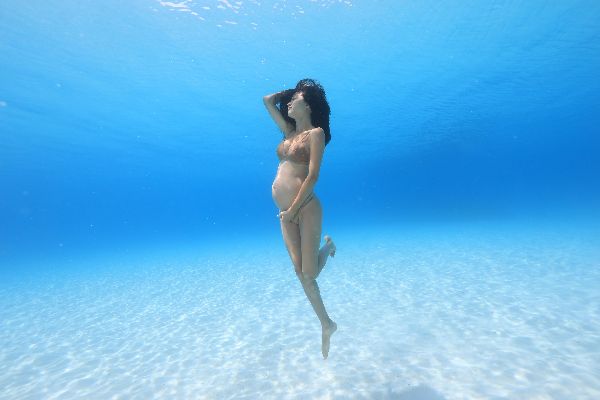“Why Do Mothers Have To Fight So Hard For What Feels So Right?” Asks Documentary, Pacific Mother
Kiwi freediving legend William Trubridge and his partner Sachiko Fukumoto say Aotearoa has the most enviable maternity system in the world; one which empowered Sachiko to birth their first baby at home, in water, supported by a midwife they knew and trusted.

The continuity-of-care model upon which Aotearoa’s maternity system is based defines the relationship between woman and midwife as a partnership in the truest sense, meaning women’s rights to informed choice are protected and upheld throughout the maternity journey.
But for all its successes, Aotearoa’s maternity system is still rife with challenges, and the couple’s new film, Pacific Mother asks what can be done to build maternity care systems that benefit entire communities.
Pacific Mother is the feature-length sequel to the short documentary Water Baby (2019), which followed Trubridge and Fukumoto’s first birth journey.
The film was selected for multiple international festivals, has been viewed by more than 8 million people around the world, and is currently used by many midwives and antenatal instructors to inspire birth choices.
Both documentaries have director Katherine McRae (Go Girls, Nothing Trivial and Shortland Street) and producer Migiwa Ozawa at the helm. Despite the hurdles COVID-19 has presented in pulling off a cross-regional film over the past two years, they hope to release Pacific Mother mid-way through 2022.
“We were surprised by the impact Water Baby had and knew we had only scratched the surface of the issues,” McRae says.
Pacific Mother journeys from Japan, to Hawaii, Tahiti, Rarotonga and Aotearoa to share interwoven stories of formidable women who live at one with the Pacific Ocean – freediving, spearfishing and paddling waka through its depths and playing with their children in its shallows – a stark contrast to fast-paced lifestyles of larger towns or cities.
These women are all mothers who experienced diverse births in hospital, at home and by the sea, with and without medical assistance. Fukumoto also meets Māori and Japanese midwives who share indigenous traditions and rituals around birth that have been lost over recent generations, and are now gradually being reclaimed.
Their stories demonstrate just how disconnected the global default maternity system is from the instinctive and cultural needs of mothers and families. They inspire a call to action on birthing rights, as well as a call for parents’ reconnection with their role as nurturers and protectors of their natural environment.
Producer Ozawa says there are many excellent documentaries about childbirth, but she wants to motivate people to think about how they – as individuals and families – can empower themselves to prepare for birth and the transition to parenthood, as well as how they can support others in this journey.
“If people do not know there is an alternative, nothing will change,” she says.
Pacific Mother is being independently funded by McRae and Ozawa, and has launched a Kickstarter campaign, to help with the costs of filming in New Zealand.


 Timaru District Council: Aigantighe Art Gallery Hosts An Iconic Robin White Touring Exhibition
Timaru District Council: Aigantighe Art Gallery Hosts An Iconic Robin White Touring Exhibition Victoria University of Wellington: Dame Winnie Laban Awarded Honorary Doctorate Recognising Achievements For Pasifika
Victoria University of Wellington: Dame Winnie Laban Awarded Honorary Doctorate Recognising Achievements For Pasifika  HESSA: This Isn’t Fair—And It’s Time To Fix It - HESSA Petition Calls For Inclusive Student Sports
HESSA: This Isn’t Fair—And It’s Time To Fix It - HESSA Petition Calls For Inclusive Student Sports Post Primary Teachers' Association: PPTA Calls On Minister Stanford To Come Clean On Kāhui Ako
Post Primary Teachers' Association: PPTA Calls On Minister Stanford To Come Clean On Kāhui Ako  Arts Access Aotearoa: Kim Anderson Awarded Deaf And Disabled Artists Fellowship 2025
Arts Access Aotearoa: Kim Anderson Awarded Deaf And Disabled Artists Fellowship 2025 Oratia Books: New Bilingual Picture Book Of Samoan Proverbs In Time For Samoa Language Week 2025
Oratia Books: New Bilingual Picture Book Of Samoan Proverbs In Time For Samoa Language Week 2025